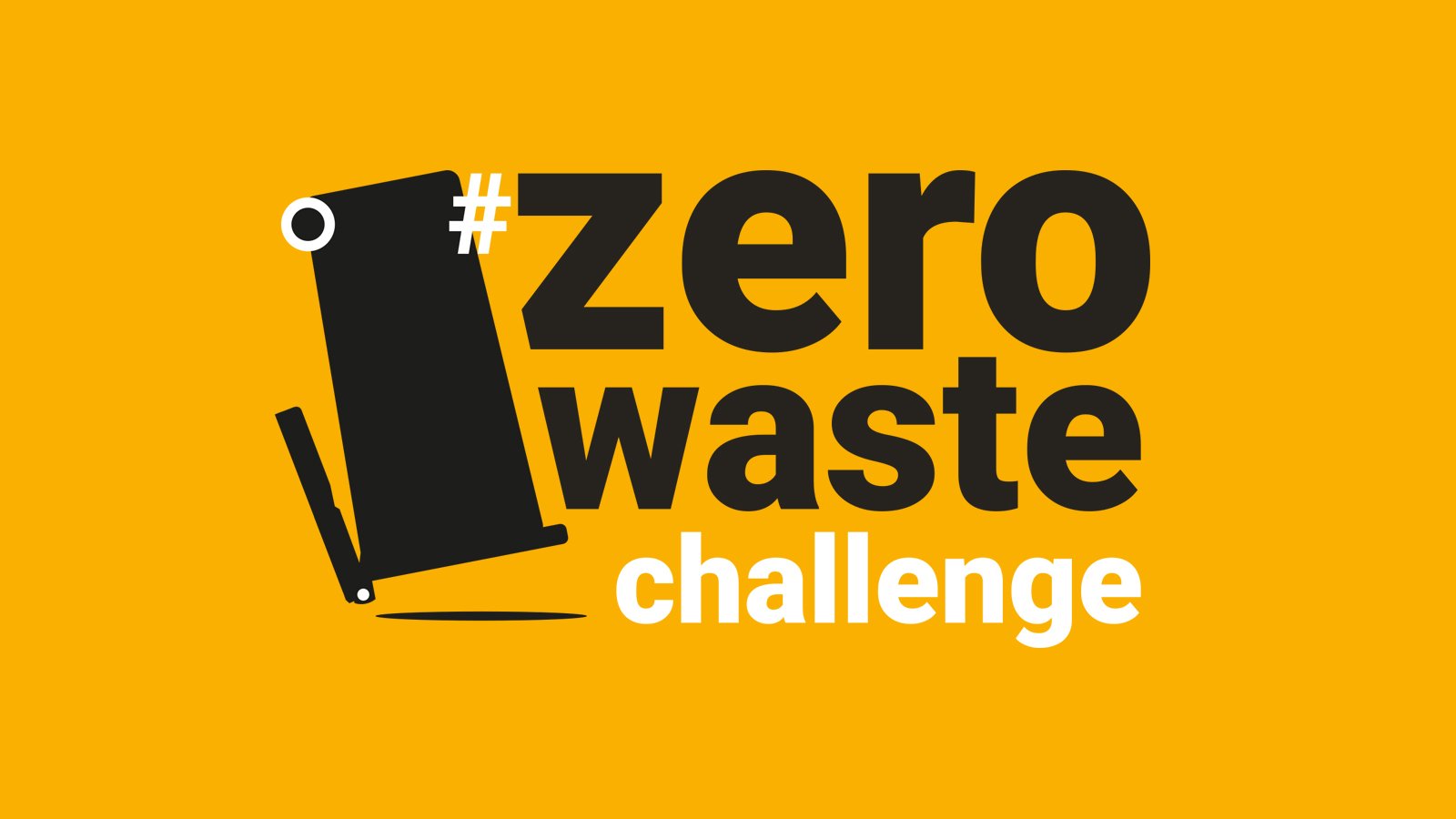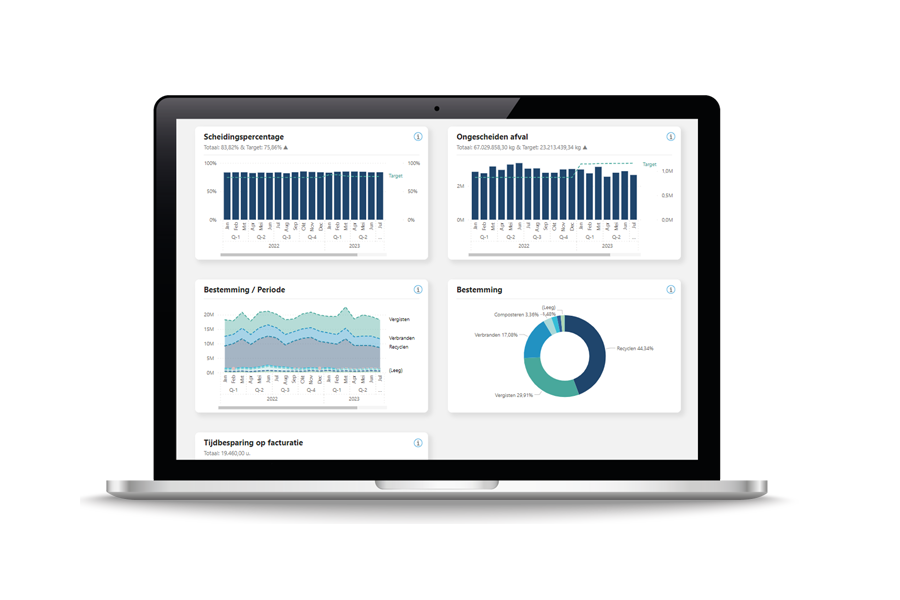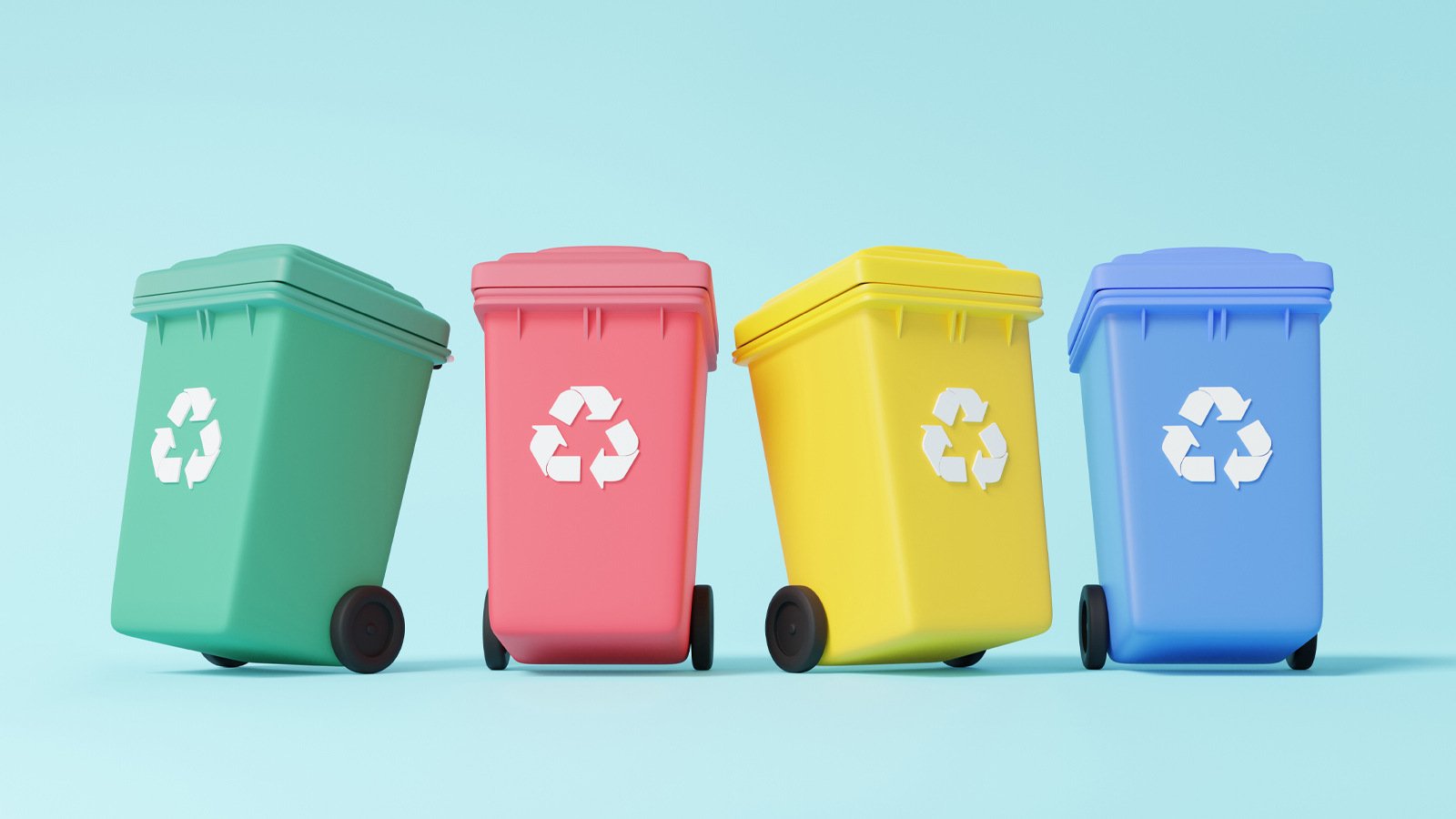Recycling is a widely known concept. Although it is a fixture on the R ladder, recycling is not at the top of the ladder. What does this say about the efficiency of recycling? And what does it offer your organization on the road to circularity? In this blog, we take a closer look at this and discuss both the pros and cons.
Disadvantages of recycling
Although recycling plays an important role in the pursuit of circularity, the process also has drawbacks. Below we discuss the main challenges and limitations of recycling.
Recycling is too often still downcycling
Although many products are labeled as recyclable and this is often presented as a sustainable choice, the reality is not always so rosy. In the current practice of waste disposal and recycling, it frequently happens that a recyclable product is not processed into an equivalent product, but rather into a lower-quality variant. This phenomenon is known as "downcycling.
Material degradation
This brings us to a second important point: material degradation. Even under ideal conditions, the quality of most materials will degrade during the recycling process. This means that infinite recycling is not feasible for most materials. So the recycling efficiency, the degree to which recyclate can be used again for new products, is often too low.
Recyclate underused as new raw material
The use of recyclate in new products is often disappointing. Take your new sports shoes, for example: only 20% of the laces consist of recycled material, so to speak. This is, of course, a step in the right direction, but ultimately we want to move toward products that are completely circular.
Product design not set up for recycling
Many products are currently not designed with recycling in mind, leading to inefficient and low-quality recycling processes. Take mattresses and electronics, for example, for which recycling solutions hardly exist anymore. It is therefore important to design products for a long lifespan and in such a way that all materials can be recycled at the end of that lifespan in a high-quality manner.
Costly process
Recycling is not only an energy- and water-intensive process, but also costly. These aspects are important factors to consider when considering recycling. Sometimes choosing a different material or business model, such as "product as a service" or extending life by offering repair services, can be more efficient and relatively inexpensive compared to recycling.
Pollution
Some recycling processes can themselves be polluting, leading to greenhouse gas emissions and water pollution. These negative environmental impacts must be carefully considered when assessing and implementing recycling strategies.
Human behavior comes into play
The human aspect plays a crucial role in the recycling process. Or as Boris van der Ham, president of the Waste Management Association rightly points out, "Recycling only works if we separate waste properly and if the recycled raw materials are also used. Two good points. To address the first; if waste is separated incorrectly, it can lead to contamination of recyclable materials, making the recycling process ineffective or more expensive.
Market forces and the demand for recycled materials
In recycling, the focus is often on the recyclability of products and the separation of waste streams. However, demand for recycled materials, or recyclate, does not always match supply. Or as van der Ham puts it, 'Recycling only succeeds if recycled raw materials are also used.' Many companies still choose virgin extracted material over recyclate. This undesirable situation has several causes.
In some cases, it has to do with the quality of the recyclate. For example, recycled plastic can be produced in all kinds of colors except transparent. Something that still sometimes proves an insurmountable obstacle for marketing departments.
Legislation and safety requirements also play a role, quickly making the choice of recyclate a less easy one. Future legislation, such as the plastic blending requirement, may change this. That legislation is only expected at the EU level by 2030 and still faces objections of unfair competition from companies that would not have to comply with the blending obligation.
The most significant cause, however, is cost. Currently, for example, virgin plastic is cheaper than recyclate. This undesirable situation is caused by a huge supply of new plastic made in countries with cheap fuel, from Russia or shale gas regions.
Read also
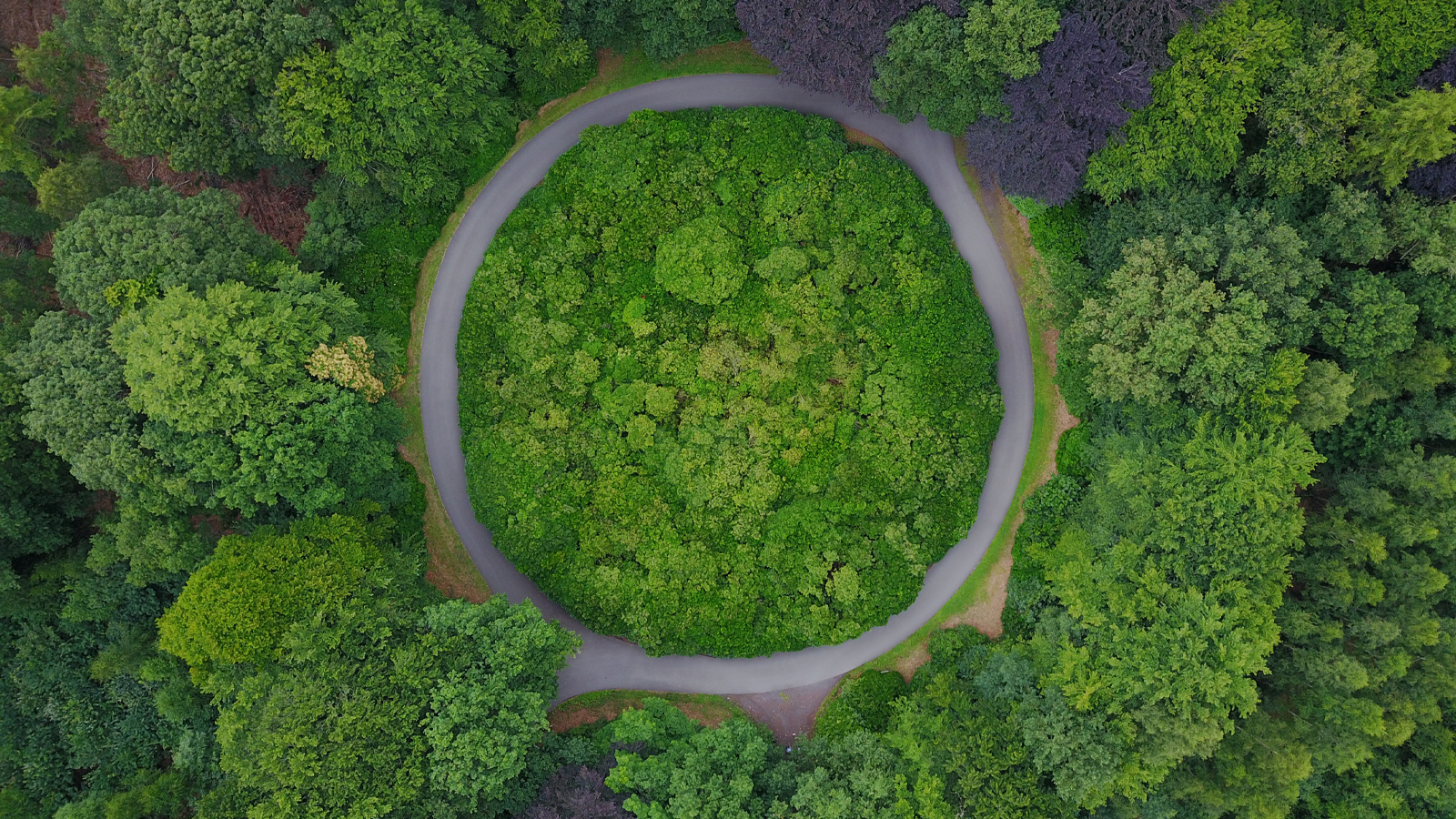
Why recycling is not truly circular
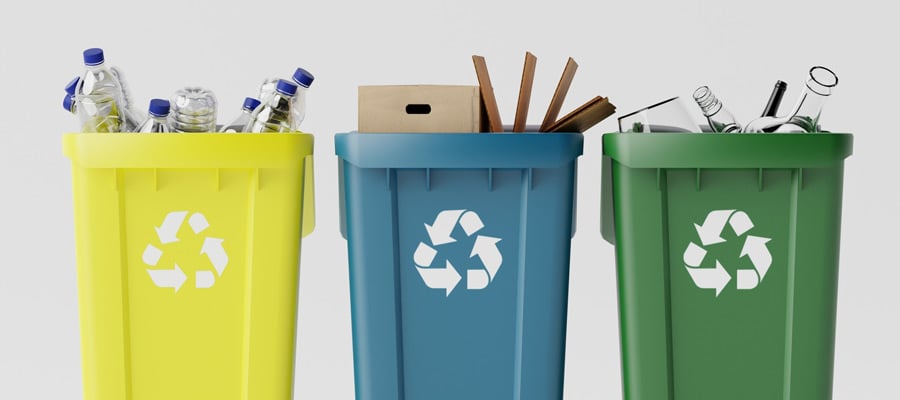
The benefits of recycling
Despite the challenges, recycling also offers great benefits that contribute positively to the environment and the economy. In this section, we highlight the key benefits of recycling.
Saves virgin materials and resources
Recycling also has many success stories. Glass is a prime example; this material can be recycled indefinitely without sacrificing quality. Although reuse is always preferable, even with glass, because recycling takes a lot of energy, using recyclate to produce new glass is a much better option than using virgin material. Recycling reduces dependence on natural resources.
Saving energy
Producing new products from recycled materials generally requires less energy than using new raw materials. Take for example the recycling of aluminum cans; this process saves 95% of the energy that would be required to produce new aluminum from bauxite. This energy savings results in fewer CO2 emissions, especially since much of the energy is generated by burning fossil fuels, which releases CO2. While recycling offers many benefits, it is important to remain critical and consider whether there is not an even better alternative available.
A good step toward Zero Waste
Recycling helps reduce the amount of residual waste sent to incinerators, which has a positive impact on the environment. It should be noted that it remains important to continuously look for ways to reduce waste streams and, if not possible, to better value and utilize them.
The more often we do it, the better we get at it
Innovations are often driven by demand and volumes. As discussed earlier, there are many developments in recycling and major innovations in the pipeline. These future breakthroughs promise to further improve the efficiency and effectiveness of recycling processes. Although increasing demand for recyclate can be expected from policy, many companies are currently still struggling with too little demand.
Milgro's vision for recycling
Milgro approaches recycling from a data-driven perspective. This critical approach ensures that all aspects of a material's life cycle are considered before a choice is made between recycling or an alternative higher up the R-ladder. For each waste stream, we can calculate what recycling means relative to the use of virgin material. Our analyses invariably show that avoiding virgin raw materials always yields a positive eco-result. We also see large differences in the emissions released in the recycling process, and the environmental benefits associated with the use of secondary materials. Our in-house LCA expertise and database on waste streams allow us to properly quantify the ecological impacts of each choice.
Our data-driven approach ensures that we view recycling as a means, not an end. Recycling is just one option within the R ladder that is highly desirable for some materials and products, and less effective for others. In addition, we also see that within the same processing method, there are differences between recycling companies in their carbon footprint. We believe it is important to continue to look broadly and factually at circular solutions for used raw materials.
Stay informed
Stay up to date on all new developments? Follow us on LinkedIn or Instagram. Or subscribe to the newsletter. Are you curious about what Milgro can do for your operations and waste process? Contact us









